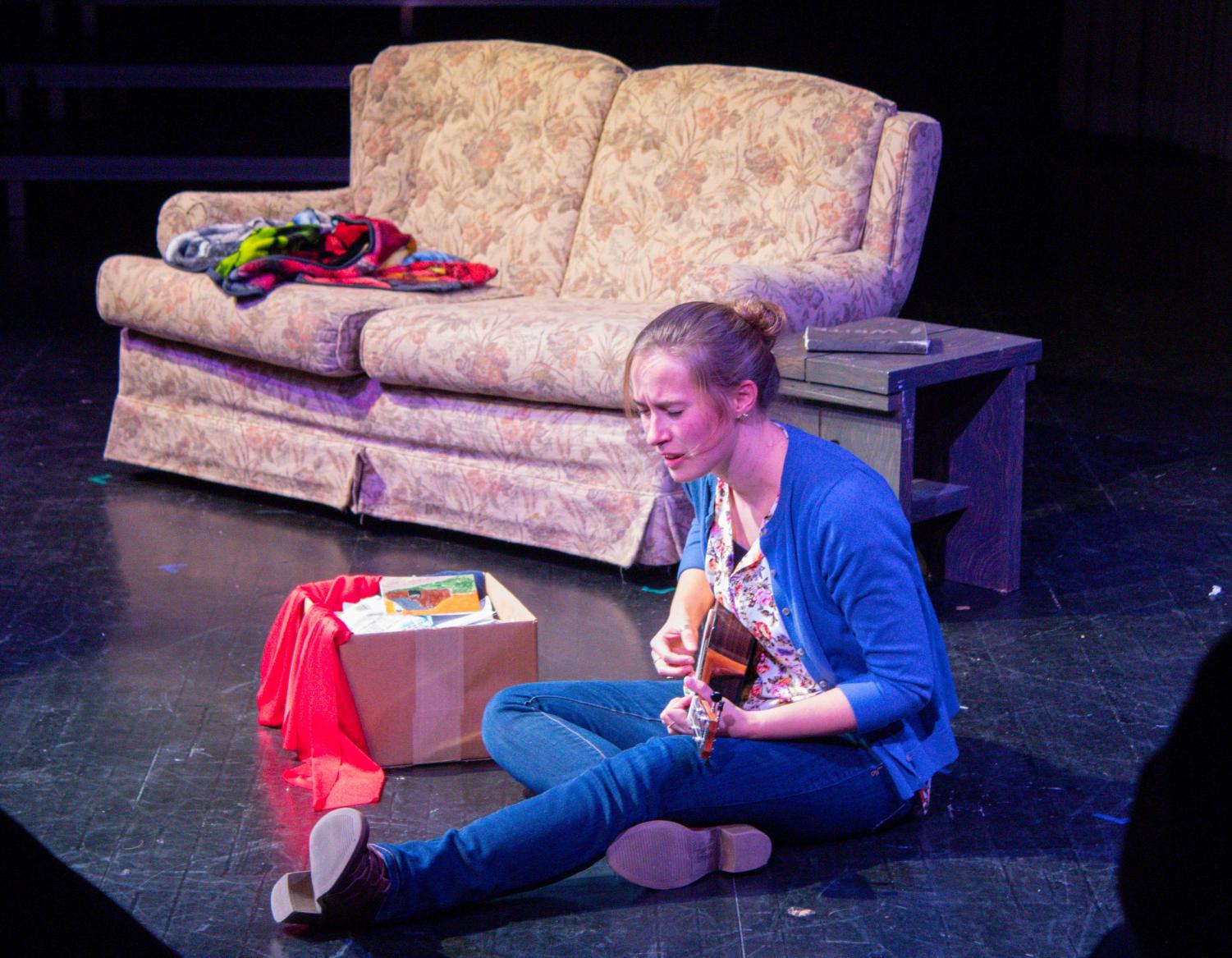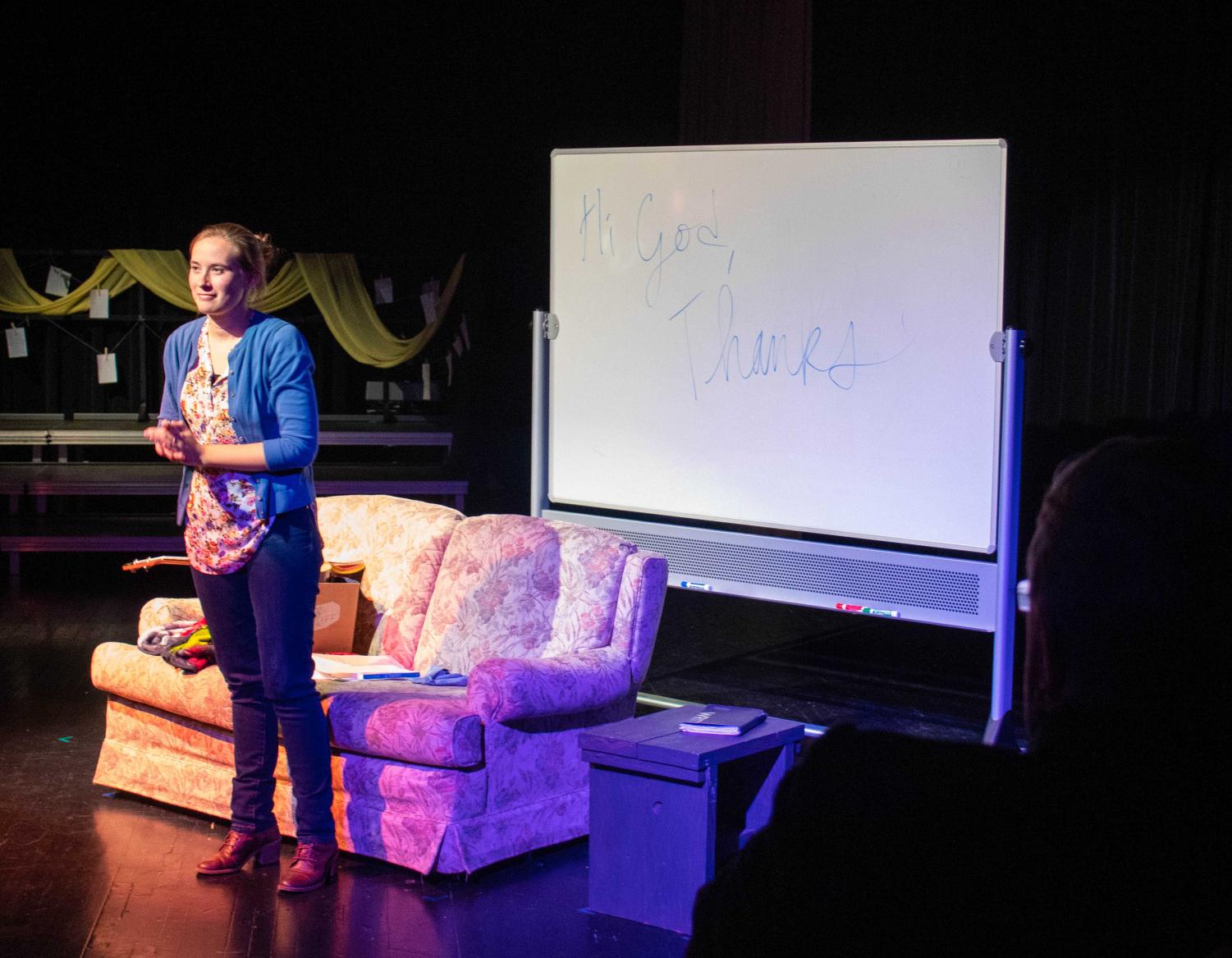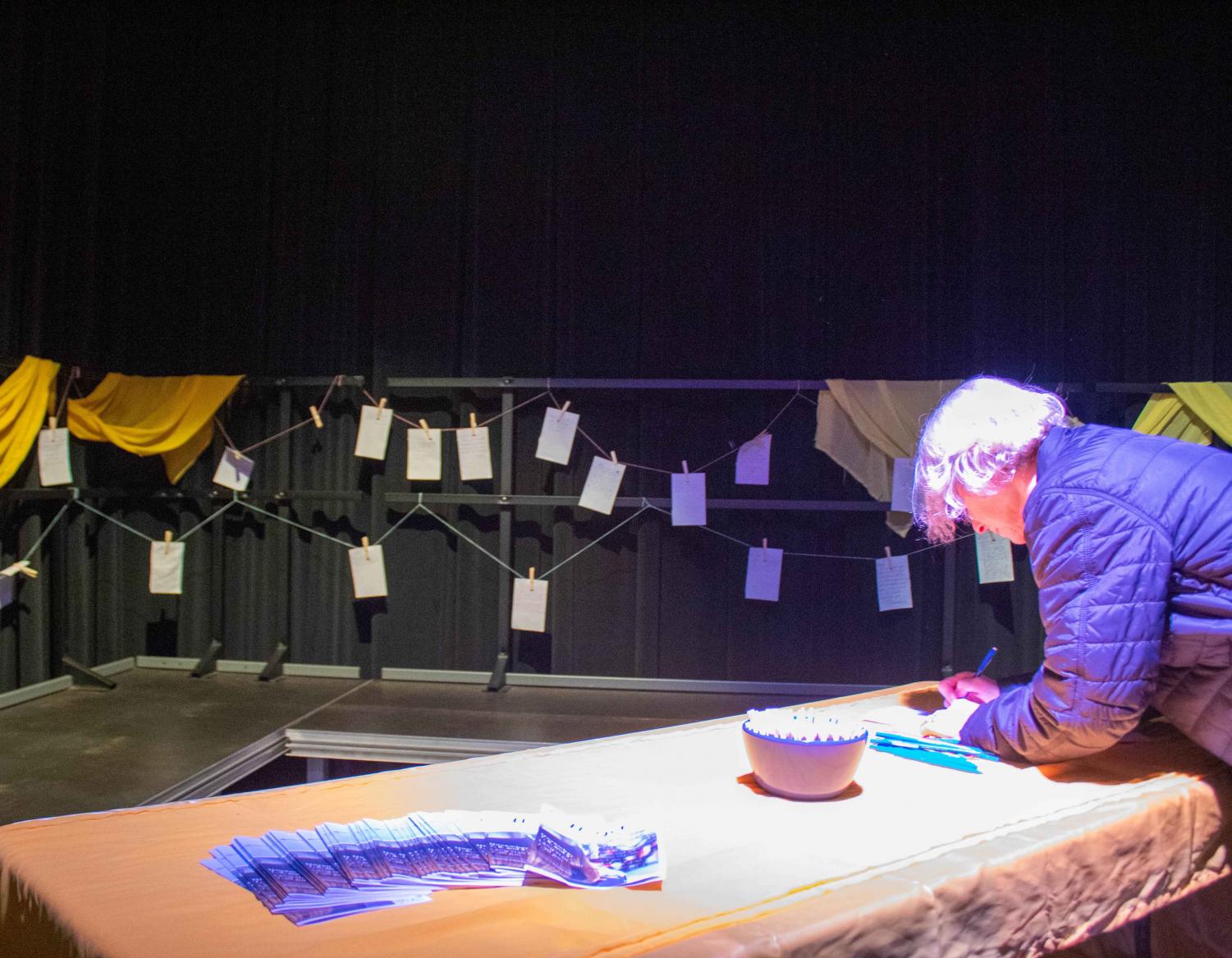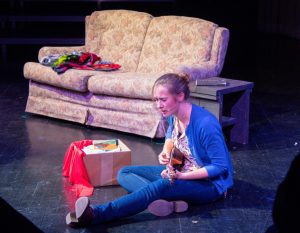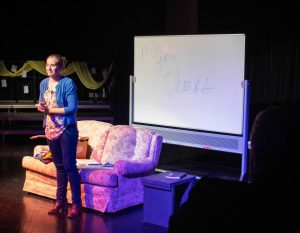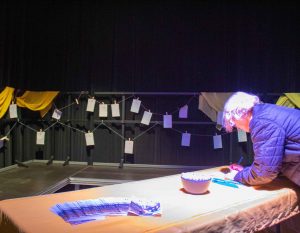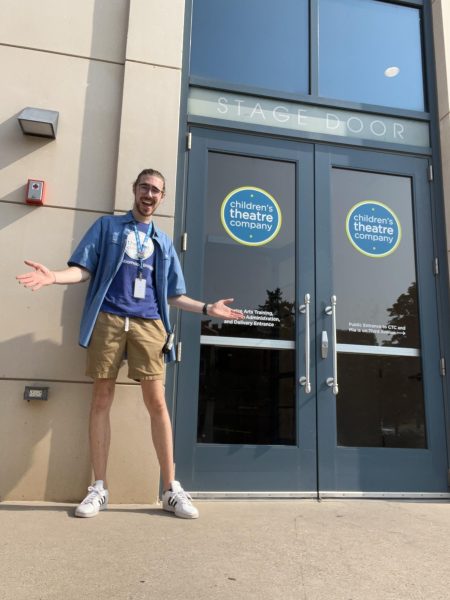Mertz is raw and real in ‘Hi God’
Nov 11, 2019
On Nov. 7, 8 and 9, the UNI Interpreters Theatre presented “Hi God,” a show written and performed by Grace Mertz. It was developed as a reflection into what it is like to be Christian in a place where religion and high academic thought rarely complement each other: graduate school.
A graduate student pursuing her master’s degree in communications and performance, Mertz is a religious person in an academic world that is often insensitive to those with values rooted in faith.
Throughout her performance, Mertz combined aspects of reflection, comedy and personal experiences in her time as a graduate student to expose the loneliness and insensitivity found in her experience in the academic world.
Mertz’s performance — addressed in turn to God, to academia, to professors and to her fellow students — was both genuine and raw. She demonstrated how snide comments from peers and instructors alike wear down those who find solace in their faith.
Setting forth the assumption that religion and logical thought are opposites, Mertz showed the audience that, for her, this was not the case. In fact, it was her religious identity fueling her eagerness to learn.
To Mertz, the attitude towards religion and religious individuals is both unfair and unproductive, contributing to her heightened sense of uncertainty regarding the validity of her presence in graduate school.
While in the process of creating this show, Mertz found herself shocked by the number of graduate students who feel out of place and insecure in their right to be there. She described her own confrontations with imposter syndrome and how criticism of her religious beliefs is often the culprit.
“Constantly questioning if you are good enough makes you lonely,” she said.
Mertz fearlessly called out the culture of academia and its reluctance to inclusivity. Graduate school, she said, makes students feel inadequate and unfit to be there, which is discouraging to many people.
“Who said grad school had to be hard like this?” Mertz’s voice broke as she asked this question of academia during her performance. “Who said that depression and anxiety and wanting to walk in front of a bus are normal? And who gave you the right to demand that I give up the most important relationship in my life for you?”
Mertz portrayed her struggle with wanting to be heard and respected in the academic world, while also maintaining her identity and religious values. Current reactions to religion in higher education make that hard to do, she said.
“When you say that religious people or Christians don’t belong in your school, you are not asking me to leave a book of ideas at the door. You’re saying if I want to succeed in your world, I have to cut a person out of my life.” Mertz said, again addressing academia in the show. “You’re telling me that I don’t get to speak until I have proven that you are more important to me than God. And it’s petty. It’s ridiculous because you’re not offering a relationship in return.”
For Mertz, her relationship with God is one of the most important in her life. Graduate school is unforgiving and hard and unfeeling, she said, and she didn’t want to make a choice between pursuing higher education and maintaining a relationship with God just to prove that she belonged.
“I don’t want to spend the rest of my life worrying about if I belong in my church or my school or anywhere else I happen to be. I don’t want to spend the rest of my life with imposter syndrome following me around,” Mertz said. “But it will follow all of us around and it will shape the culture of academia as long as we let it. So how do we do this? How do we become the people that we want to be that stay in our own skin in a place that doesn’t always seem to want us?”
In “Hi God,” Mertz called on her fellow students and professors to stop and consider their words before making insensitive comments about religious people. She explained that religiously minded individuals are not dumb or stupid, and their choice to believe in God is not baseless.
In fact, Mertz showed her belief that her religion is what keeps her going during hard times, and it is what compels her to be a better, more loving person.
“If all the knowledge we’re gaining does nothing but make us boastful and rude and heroes in our own minds, then it would be better if we didn’t know anything at all,” Mertz said.
“Knowledge doesn’t make a place for other people. Not like love does. Knowledge doesn’t bear all things, believe all things, hope and endure all things about other people. Not like love does,” she continued. “And better than that, love isn’t about making space for me; love is about opening a place for you.”
Graduate school is a place to learn, and that shouldn’t have to mean giving up one’s belief system. Mertz made a point to mention that it is hard enough to feel isolated and lonely and not good enough.
“So let’s be patient with each other,” she said. “Let’s be kind. Let’s be humble and let’s not take offense at each other. Let’s try to start making some space for each other.”
Inside every program, attendees found a blank piece of notebook paper. On this paper, audience members were encouraged to write their own letter about the show, to God or to a professor who has shaped their academic experience and add it to a display in a corner of the theatre.
Through her authentic and vulnerable performance, Mertz was able to provide a sense of validation to religious individuals in the academic world, as well as anyone dealing with imposter syndrome in regard to their belonging in academia.
From her performance, Mertz hoped audience members will recognize that even if they are questioning their sense of belonging in higher academia, they certainly are not alone.
For information about upcoming Interpreters Theatre productions, visit commstudies.uni.edu/interpreters-theatre or follow @UNIInterpTheatre on Instagram or Facebook.

